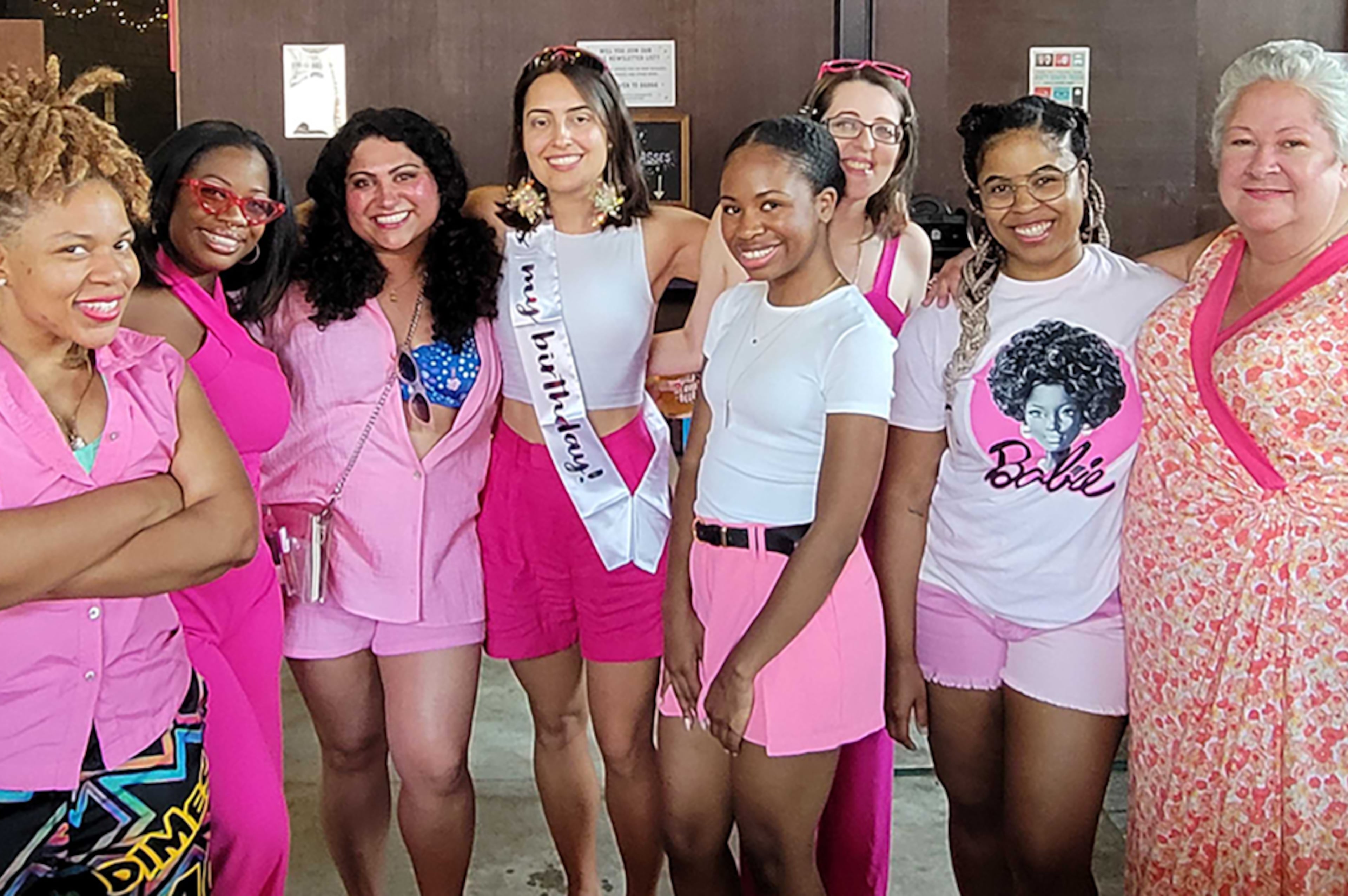‘Rapper’s Delight’: 1979 song introduced rap to a mass audience
During the month of February, The Atlanta Journal-Constitution will publish a daily feature highlighting African American contributions to our state and nation. This is the fifth year of the AJC Sepia Black History Month series. In addition to the daily feature, the AJC also will publish deeper examinations of contemporary African American life each Sunday.
It was 1979. Hip-hop was happening, in dance halls, at high school gyms and on street corners in Queens, Brooklyn and the Bronx.
Rappers such as Melle Mel and Fab Five Freddy were spitting rhymes over scratching turntables; breakdancers performed with them, throwing down acrobatic moves, stylishly posing.
The movement grew from the ground up. Dancers, MCs, DJs, artists, clothing designers, each adding a new element to the mix.
But it took a Harlem-born record producer and singer — and a trio of neophytes — to bring rap to a mass audience with “Rapper’s Delight.”
Sylvia Robinson, who performed as Little Sylvia, had a 1957 hit with the tune “Love Is Strange” as one half of the duo Mickey & Sylvia. She went on to write and produce records for her labels, All Platinum Records and Sugar Hill Records, the latter named after a notable Harlem neighborhood.
Robinson recognized the rising tide of hip-hop, and found a way to capture the fast-talking street poetry on vinyl. In the fall of 1979, she drafted Michael Anthony “Wonder Mike” Wright, Guy “Master Gee” O’Brien and Henry “Big Bank Hank” Jackson to come to her studio and freestyle over live musicians playing an instrumental version of a Chic tune called “Good Times.”

»RELATED: Public Enemy: Prophets of Rage
The 14-minute performance was released as a single on 12-inch vinyl, and began to creep its ways into the ears of mainstream America.
The lyrics were generally inoffensive and goofy; they were about dancing, impressing girls, parties, dancing, an ill-fated dinner party and more dancing.
Over a percussive bed of congas, cowbell, and the occasional disco flourish, Wonder Mike introduces the fun with "I said a hip, hop, the hippie, the hippie, to the hip, hip hop and you don't stop, the rocking to the bang bang boogie, say, up jump the boogie, to the rhythm of the boogie, the beat."
It was a vocal drum solo. The rhythm mattered as much as the words — or even more so. But the words also introduced terms that would become part of the rap lexicon, including “sucker MCs,” “ill” and the term “hip-hop” itself.
A new art form, worth billions, was born. “The levee broke on that record,” said CeeLo Green, Atlanta native, judge on “The Voice,” and the lungs behind “Crazy.”
Listeners were hooked. Released on Sept. 16, 1979, it entered Billboard’s Top 40 on Oct. 13. Fans of a certain age will reminisce about memorizing the spiel.
»RELATED: Dolemite, the godfather of rap
Patty Garrett is one of them. At karaoke time, Garrett, 56, will bring the room to an uproar with her secret ability to spit out the seven-minute version.
Garrett is a volunteer for the Carter Center, and when she schedules evening activities for the yearly gathering of the donors, she makes sure that Friday night is karaoke night. Then she rocks the house.
“It brings other people enjoyment,” said the Marietta consultant. “People cannot believe that I know all the lyrics.”
The success of “Rapper’s Delight,” which sold 2 million copies in the U.S., led to conflict. Nile Rodgers of Chic sought his share of the proceeds, along with Chic co-founder Bernard Edwards, whose thumping bass line anchors the piece. (They were later credited as co-writers.)
Competing versions of the Sugarhill Gang performed in concert, which led to more legal challenges. O’Brien and Wright went to court over use of the name.
Henry “Big Bank Hank” Jackson died of cancer in 2014 at age 58. The surviving members of the gang continue to perform, and gave Jimmy Kimmel’s television audience a performance of a five-minute version in October 2019.
As predicted in the lyrics, the tune appealed across race lines, “to the black, to the white, the red and the brown, the purple and yellow.”

»RELATED: Outkast: Big Boi, Andre 3000 thrived as duo, then apart
Jenni Kopelman, founder of the Atlanta School for the Performing Arts, was a 15-year-old cheerleader at a Catholic school in Fort Worth, Texas, learning the lyrics to “Rapper’s Delight” by picking up the needle and moving it back to the first groove, over and over.
She would perform the tune, to the amusement of her bus-mates, on the long trips to away basketball games. “It’s timeless,” she said. “They are the epitome of being hip. They did it with such style.”
Many of the nascent performers inspired by “Rapper’s Delight” went on to music careers.
At the end of 1979, Todd Thomas was only 11 years old, but the tune spoke to him. He also had a pop music advantage: His father owned a nightclub in Milwaukee, and he heard the new hits early.
“I had never heard of hip-hop, never heard of rap music, and when ‘Rapper’s Delight’ first came out, I literally was like, jaw dropped to the floor,” said Thomas, who would grow up, change his name to Speech, start a group called Arrested Development, and score his own crossover hit “Tennessee.”
“There was no chorus, there was no bridge, there was no traditional song structure, it totally put all of the emphasis on the spoken word, and it blew my mind,” said Thomas.
He and a friend, whose name was also Todd, formed a group and started rapping. “We were thoroughly influenced by ‘Rapper’s Delight.’ It felt like something we all could get involved with. It felt attainable. It was just fresh. It didn’t feel or sound like anything that happened before it.”
» RELATED: 7 things you never knew about hip-hop's history in America
Hip-hop went on to displace rock ‘n’ roll as the leading edge of pop music.
And, said Todd “Speech” Thomas, that transformation began with “Rapper’s Delight.”
“To me, the Sugarhill Gang will always go down in hip-hop history as the ones that brought it to the world.”
BLACK HISTORY MONTH
Throughout February, we’ll spotlight a different African American pioneer in the Living section every day except Fridays. The stories will run in the Metro section on that day.
Go to www.ajc.com/black-history-month/ for more subscriber exclusives on people, places and organizations that have changed the world and to see videos and listen to Spotify playlists on featured African American pioneers.
More Stories
Keep Reading



